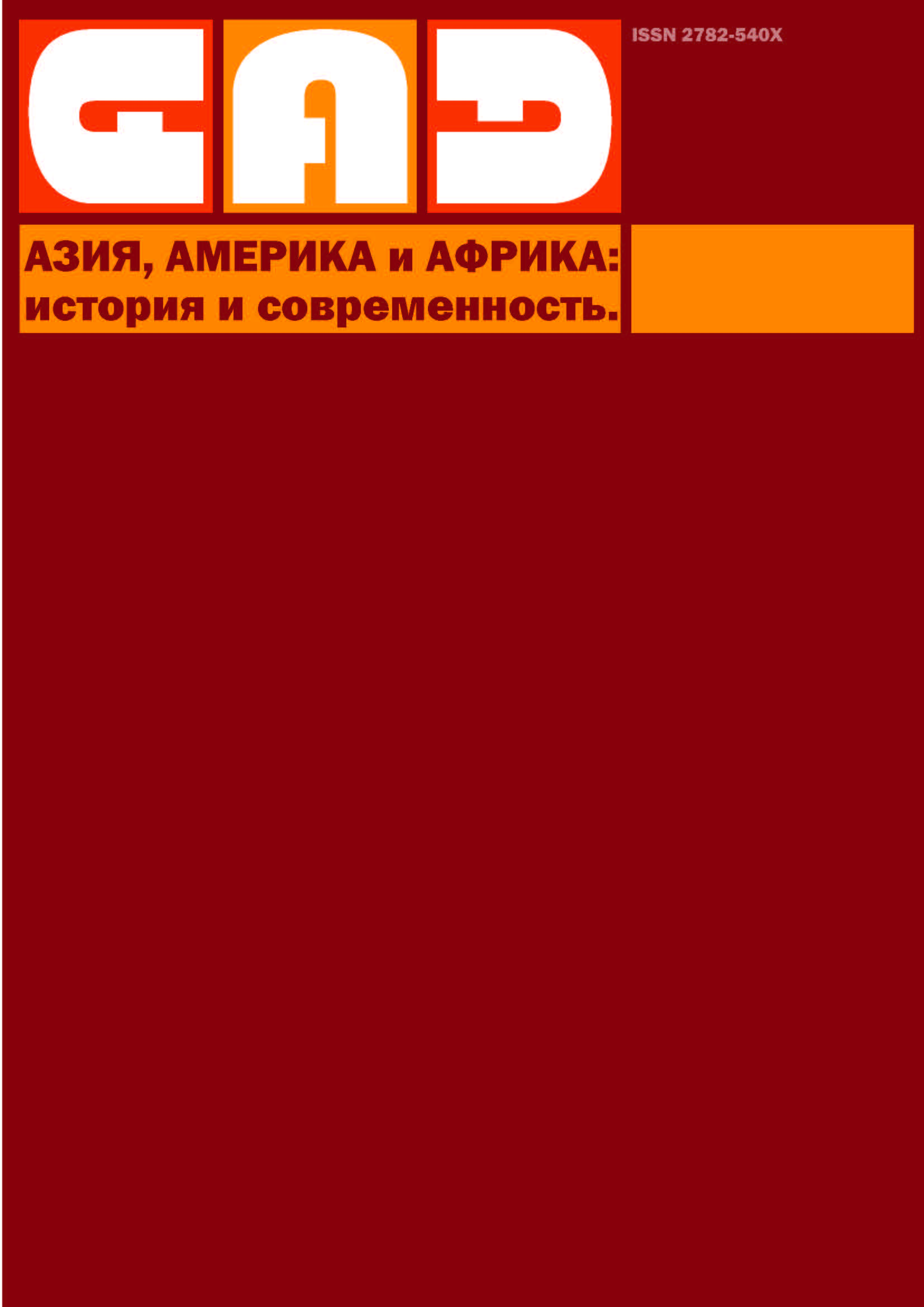UDC 37
CSCSTI 14.00
Russian Classification of Professions by Education 44.00.00
Russian Library and Bibliographic Classification 7
Russian Trade and Bibliographic Classification 7
BISAC EDU EDUCATION
Modern psychology is increasingly turning in its research to the phenomenon of learned helplessness, due to the high prevalence of this condition among representatives of different age groups. This actualizes a detailed study of what this phenomenon is and what ways to solve this problem are effective and appropriate today. The phenomenon of learned helplessness in modern psychology is described as a condition in which an individual does not strive to improve his situation, while having such opportunities. An analysis of literature and scientific research indicates that this phenomenon manifests itself in four personal spheres of a person: emotional, motivational, cognitive, and volitional. It becomes possible to study the conditions and mechanism of formation of learned helplessness in the process of ontogenesis by studying deficit manifestations in these areas of personality. The process of therapy of the identified deficiencies requires a multifunctional approach, taking into account the multicomponent structure of the claimed condition. Art therapy meets the required characteristics and allows you to explore the formed distortions at a deep level. A wide range of tools used in this approach allows you to flexibly choose an individual approach in drawing up a psychological work plan, strengthening the resource qualities of the subject and avoiding retraumatization in the process. An important connecting element is the subjectivity of self-perception in the presence of a symptom complex of learned helplessness in a psychological history and the subjectivity of the products of art therapy work carried out with a person for diagnostic and therapeutic purposes.
personality, learned helplessness, independence, art therapy, psychodiagnostics
1. Aleksandrov D. V. Uchenie Aristotelya o dushe. Razum i volya / D. V. Aleksandrov // Studencheskiy. – 2024. – № 1-7 (255). – S. 11-13.
2. Volkova, O. V. Vzaimosvyaz' vyuchennoy bespomoschnosti, volevogo razvitiya i somaticheskogo zdorov'ya starshih doshkol'nikov: suschnost' problemy i puti resheniya / O. V. Volkova // Sovremennye issledovaniya social'nyh problem. – 2013. – № 8. – S. 12.
3. Volkova O. V. Vyuchennaya bespomoschnost': tehnologiya issledovaniya geneza // SO RAN. – 2018. – 229 s.
4. Ivannikova A. V. Art-terapiya v psihologicheskom konsul'tirovanii / A. V. Ivannikova // Problemy sovremennogo obrazovaniya. Mezhvuzovskiy sbornik nauchnyh trudov: mezhdunarodnoe izdanie. – Moskva, 2019. – S. 180-186.
5. Klochko, V. E. Samorealizaciya lichnosti: sistemnyy vzglyad / V. E. Klochko, E. V. Galazhinskiy // Nacional'nyy issledovatel'skiy Tomskiy gosudarstvennyy universitet (Tomsk). – 2000. – 154 s.
6. Krikunova, E. A. E. Fromm o svobode voli cheloveka kak ob osnove ego nravstvennogo vozvysheniya / E. A. Krikunova // Izvestiya Rossiyskoy akademii obrazovaniya. – 2017. – № 3 (43). – S. 54-70.
7. Moiseenko A. S. Issledovanie sformirovannosti elementov samosoznaniya / A. S. Moiseenko, A. H. Kukubaeva // NovaInfo.Ru. – 2021. – № 124. – S. 82-86.
8. Nazarenko, I. P. Art-terapiya v reabilitacionnyh programmah dlya lyudey s psihicheskimi rasstroystvami / I. P. Nazarenko // Vestnik Associacii psihiatrov Ukrainy. – 2012. – №1. – S. 39-41.
9. Petrova, S. M. K probleme strukturnyh komponentov samosoznaniya lichnosti: metodicheskiy aspekt / S. M. Petrova // Vestnik Pskovskogo gosudarstvennogo pedagogicheskogo universiteta. Seriya: Social'no-gumanitarnye i psihologo-pedagogicheskie nauki. – 2007. – № 1. – S. 182-190.
10. Rodzhers, K. R. Stanovlenie lichnosti. Vzglyad na psihoterapiyu / K. R. Rodzhers // Eksmo-Press. – 2001. – 414 s.
11. Sedova A. S. Rol' art-terapii v psihodiagnostike / A. S. Sedova, V. L. Soboleva, T. A. Shapovalova-Gupal // Izbrannye doklady 69-y Universitetskoy nauchno-tehnicheskoy konferencii studentov i molodyh uchenyh. – Tomsk, 2023. – S. 673-681.
12. Seligman, M. Kak nauchit'sya optimizmu: izmenite vzglyad na mir i svoyu zhizn' = Learned Optimism. How to Change Your Mind and Your Life // Al'pina Pablisher. – 2013. — 338 s.
13. Sochivko D. V. Psihodinamicheskie ucheniya pozdney antichnosti v psihologii i filosofii / D. V. Sochivko // Prikladnaya yuridicheskaya psihologiya. – 2018. – № 3 (44). – S. 6-18.
14. Topneva A. V. Kul'turno-istoricheskaya koncepciya razvitiya psihiki L. S. Vygotskogo: perspektivy ispol'zovaniya idey L. S. Vygotskogo v sovremennom obrazovanii / A. V. Topneva // Fundamental'naya i prikladnaya nauka. – 2016. – № 4 (4). – S. 106-107.
15. Tyunina E. D. Osmyslenie lichnosti v trudah otechestvennyh uchenyh HH veka / E. D. Tyunina // Povolzhskiy vestnik nauki. – 2020. – № 1 (15). – S. 69-71.
16. Filippova E. E. Geroi dialogov Platona /E. E. Filippova // Molodezhnyy innovacionnyy vestnik. – 2020. – T. 9. – № S2. – S. 363.
17. Hill A. Iskusstvo protiv bolezni: istoriya art-terapii // Dzhordzh Allen i Anvin. – 1945. – 88 s.
18. Hogan S. Iskusstvo isceleniya: istoriya art-terapii // Dzhessika Kingsli. – 2001. – 336 s.
19. Ciring D.A. Psihologiya lichnostnoy bespomoschnosti: issledovanie urovney sub'ektnosti // Akademiya. – 2010. – 410 s.
20. Ciring, D. A. Sovremennye podhody k korrekcii vyuchennoy bespomoschnosti u detey i podrostkov / D. A. Ciring // Sibirskiy psihologicheskiy zhurnal. – 2015. – № 4. – S. 52.
21. Shadrina, A. Yu. Rol' metodov art-terapii v rabote s pacientami s ipohondricheskim tipom otnosheniya k bolezni / A. Yu. Shadrina // Sovremennoe professional'noe obrazovanie: opyt, problemy, perspektivy: materialy VIII Mezhdunarodnoy nauchno-prakticheskoy konferencii. V 2-h chastyah. – Rostov-na-Donu, 2021. – Ch. 1. – S. 424–427.
22. Shevcov K. P. Chelovek zolotogo veka: sokrat v dialogah Platona / K. P. Shevcov // Platonovskie issledovaniya. – 2020. – T. 13. – № 2. – S. 69-91.
23. Yakovleva Yu. V. Fenomen samostoyatel'nosti (na materiale yunosheskogo vozrasta) / Yu. V. Yakovleva // Vestnik Kostrom. gos. un-ta im. N. A. Nekrasova. − 2008. − № 5. − S. 161−165.





